MD Full Form in Medical: Full Meaning, Course Details & Career Scope
MD full form in medical is Doctor of Medicine. Learn about its course details, eligibility, top specializations, colleges, salary, and career scope.

MD Full Form in Medical: In medical academic qualifications play an essential role. Among all the medical degree "MD" represents the most distinguished postgraduate qualification. MD stands for Doctor of Medicine. For medical aspirants it is very important to understand the MD Full Form in Medical, its importance and career scope. In this article, we will explain all essential information regarding Medical Doctor (MD)in a simple way.
What is the Full Form of MD in Medical?
MD Full Form in Medical: Doctor of Medicine
Students obtain an MD degree by completing MBBS (Bachelor of Medicine and Bachelor of Surgery) education. Through MD qualification doctors gain the ability to choose specialized medical fields including General Medicine, Pediatrics, Radiology and more.
In India, MD degree is for clinical and theoretical specialization in medicine. Although in many countries like United States, MD is a professional medical degree which is equal to MBBS degree.
Difference Between MBBS and MD
The table below highlights the key difference between MBBS and MD.
| Aspect | MBBS | MD |
|---|---|---|
| Level | Undergraduate | Postgraduate |
| Duration | 5.5 years | 3 years |
| Focus | General medical education | Specialization in medicine |
| Eligibility | After 12th with PCB | After MBBS and internship |
| Salary | Very less as compared to MD degree holders. | Average: Rs. 7,20,000 per year (varies based on specialization) |
| Career | General practitioner, surgeon, or pursue MD for specialization in their preferred field | A specialist in a chosen field |
Medical Abbreviations & Their Full Forms
| Abbreviation | Full Form |
|---|---|
| ATP | Adenosine Triphosphate |
| KUB | Kidney, Ureter, and Bladder |
| NEET | National Eligibility cum Entrance Test |
| COVID-19 | Coronavirus Disease 2019 |
| CBC | Complete Blood Count |
| BMR | Basal Metabolic Rate |
| ENT | Ear, Nose, and Throat |
| EEG | Electroencephalogram |
| LFT | Liver Function Test |
| OPD | Outpatient Department |
| AIIMS | All India Institute of Medical Sciences |
| NCERT | National Council of Educational Research and Training |
| ADHD | Attention Deficit Hyperactivity Disorder |
| ANS | Autonomic Nervous System |
| MBBS | Bachelor of Medicine and Bachelor of Surgery |
| ICMR | Indian Council of Medical Research |
| STD/STI | Sexually Transmitted Disease / Infection |
| MRI | Magnetic Resonance Imaging |
| BP | Blood Pressure |
| AIDS | Acquired Immunodeficiency Syndrome |
| TB | Tuberculosis |
| SARS | Severe Acute Respiratory Syndrome |
| UTI | Urinary Tract Infection |
| ESR | Erythrocyte Sedimentation Rate |
| PYQ | Previous Year Questions |
| PNS | Peripheral Nervous System |
| NTA | National Testing Agency |
| DNA Fingerprinting | Deoxyribonucleic Acid Fingerprinting |
| BCG | Bacillus Calmette-Guérin |
| RBC | Red Blood Cells |
| JIPMER | Jawaharlal Institute of Postgraduate Medical Education and Research |
| COPD | Chronic Obstructive Pulmonary Disease |
| WBC | White Blood Cells |
| HPV | Human Papillomavirus |
| RNA | Ribonucleic Acid |
| HBsAg | Hepatitis B Surface Antigen |
| NMC | National Medical Commission |
| PG | Postgraduate |
| HIV | Human Immunodeficiency Virus |
| IVF | In Vitro Fertilization |
| ECG | Electrocardiogram |
| BMI | Body Mass Index |
| MS | Master of Surgery |
| DNA | Deoxyribonucleic Acid |
| ICU | Intensive Care Unit |
| OCD | Obsessive Compulsive Disorder |
| WHO | World Health Organization |
| UG | Undergraduate |
| MMR | Measles, Mumps, and Rubella |
| CT Scan | Computed Tomography Scan |
| CNS | Central Nervous System |
| CDC | Centers for Disease Control and Prevention |
MD Course Details
The Doctor of Medicine (MD) postgraduate study allows MBBS graduates to advance their medical skills within a particular specialist field. Both theoretical instruction and practical clinical skills constitute the structured format of this educational program.
1- Course Duration: The total duration required to finish an MD course is 3 years. In this three-year timeframe academic training as well as hands-on experience is given to students in their chosen field of study.
2- Study Mode: Doctors must dedicate the necessary time to study full-time through classroom learning together with hospital duties and clinical rounds. Its purpose is to teach advanced medical practices.
3- Curriculum: The education program consists of in-depth theory and clinical case studies and diagnostic and therapeutic procedures, dissertation (thesis) writing as well as final tests. Through this students not only master medical science but also develop research and analytical skills.
4- Internship/Residency: Attending an internship and residency becomes necessary to pursue MD after completing medical school training. Also additional residency experience is generally required for most advanced medical programs. The real-time practice at hospitals during the clinical postings offers opportunities to doctors to meet patients and diagnose diseases and participate in supervised treatments.
Eligibility Criteria for MD Program
As you know to enroll for any program there are certain eligibility conditions which students must fulfill. The eligibility criteria for MD program is better explained in the table below:
| Criteria | Description |
|---|---|
| Educational Qualification | Must have a valid MBBS degree from a recognized university by the NMC/MCI |
| Internship Completion | Students should have completed a compulsory one-year rotating internship |
| Entrance Exam Requirement | Must qualify in NEET PG or INI CET ( as required by the chosen institution) |
| Registration Certificate | Provisional or permanent registration with the Medical Council of India (MCI) or State Medical Council (SMC) |
| Minimum Aggregate Marks | Some institutions may require a minimum of 50% marks in total in MBBS program |
| Nationality | Both Indian citizens and Overseas Citizens of India (OCI) are eligible |
Note: Only well qualified candidates with proper clinical training are eligible to pursue the MD program in India.
Top MD Specializations in India
- MD in General Medicine – Focuses on diagnosing and managing a wide range of adult medical conditions.
- MD in Pediatrics – Specializes in the healthcare and treatment of infants, children, and adolescents.
- MD in Dermatology – This specialization addresses the diagnosis together with treatment of skin hair and nail disorders.
- MD in Radiology – Involves medical imaging techniques like X-rays, CT scans, and MRIs for diagnosis.
- MD in Psychiatry – Focuses on the diagnosis, treatment, and prevention of mental health disorders.
- MD in Pathology – Conducts disease examination by analyzing blood tests of body tissues and fluids and laboratory tests.
- MD in Anesthesiology – Deals with anesthesia administration and pain management during surgeries.
- MD in Neurology – Investigates nervous system conditions which affect brain structures along with spine structures and nerve pathways.
- MD in Pulmonology – Specializes in diseases and conditions of the lungs and respiratory system.
- MD in Cardiology – Concerned with diagnosis and treatment of heart and cardiovascular diseases.
- MD in Obstetrics and Gynecology – Focuses on women’s reproductive health, pregnancy, and childbirth.
Admission Process for MD Course
The step by step admission process for MD course is given below:
1. Complete MBBS & Internship
- He / She must have a recognized MBBS degree.
- Must completed a one-year compulsory rotatory internship from a recognized hospital or medical institution.
2. Appear for NEET PG / INI CET
- NEET PG (National Eligibility cum Entrance Test – Post Graduate) is conducted by NBE for most government and private colleges in India.
- INI CET (Institute of National Importance Combined Entrance Test) is for admission to premier institutes like AIIMS, PGIMER, JIPMER, and NIMHANS.
3. Qualify the Exam & Get a Rank
- After the exam, results are declared with All India Rank (AIR).
- Must score above the qualifying cutoff which varies each year based on the number of candidates, difficulty level, and seats available.
4. Register for Counseling
- MCC (Medical Counseling Committee) handles All India Quota (AIQ) 50% seats.
- State Counseling Authorities conduct counseling for the remaining 50% state quota seats.
- Separate registrations are required for AIIMS, JIPMER, and other INI CET institutes.
5. Choice Filling & Locking
- During counseling, you must select and prioritize colleges and specializations.
- Based on your rank, seat availability, and preferences, seat allotment is done.
- You need to lock your choices before the deadline date.
6. Seat Allotment
- After each counseling round, seat allotment results are declared.
- You’ll be allotted a college and branch as per your rank and preferences.
7. Document Verification
At the time of reporting to the allotted college, you need to carry:
- MBBS degree and mark sheets
- NEET PG / INI CET scorecard and admit card
- Internship completion certificate
- State Medical Council or MCI registration
- Valid ID proof
- Caste certificate (if applicable)
8. Final Admission & Fee Payment
- Once documents are verified, you will be granted admission.
- You must pay the course fee as prescribed by the college or university.
- Then you officially start the MD program.
Top Colleges for MD in India
- AIIMS Delhi
- PGIMER, Chandigarh
- CMC, Vellore
- JIPMER, Puducherry
- Mention NIRF rankings if applicable
Career Scope After MD
- Work Opportunities: MD graduates can work in hospitals, private clinics, medical colleges, and research institutions.
- Government vs Private Sector Jobs: Government jobs offer stability and benefits, while private sector roles often provide higher salaries and faster career growth.
- Roles: MD professionals can work as Physicians, Medical Specialists, Lecturers, Consultants, or Medical Officers.
- Salary Expectations: The average salary of MD professionals ranges from ₹10 to ₹20 lakh annually. Although it varies depending on experience and specialization.
MD Course Fee
MD Course Fee varies based on the country and institution. Th etable below compares the fee structure of various countries for MD program:
| Country | Average Annual Fee (INR) | Notes |
|---|---|---|
| India | ₹10 – ₹20 Lakhs (Private) | Government colleges are much cheaper (₹50K – ₹2 Lakhs/year) |
| USA | ₹40 – ₹60 Lakhs | Requires clearing USMLE and includes tuition + living costs |
| UK | ₹30 – ₹50 Lakhs | PLAB needed; includes tuition and additional NHS training fees |
| Canada | ₹35 – ₹55 Lakhs | Tough admission; requires MCAT & IELTS |
| Australia | ₹30 – ₹50 Lakhs | Must qualify AMC exam; high cost of living included |
| Germany | ₹5 – ₹10 Lakhs | Public universities are affordable; must know German |
| Russia | ₹6 – ₹12 Lakhs | Popular among Indian students; medium-quality infrastructure |
Read More: Total AIIMS Seats in India
MD Salary in India and Abroad
MD Salary in India: MD degree holders salary possibilities depend on their country and field of specialization together with their years of practice and professional workplace. The starting salary for fresh MD graduates in India starts with ₹10–15 LPA and increases with the time as they gain experience and specialization. The salary range for Cardiologists and Neurologists along with other super-specialists often exceeds ₹25–30 LPA. Academic positions together with government employment provide reliable employment security although they come with reduced payment levels.
MD Salary in Abroad: The yearly compensation levels in foreign nations exceed those available in home countries. Medical doctors in the United States receive annual earnings starting from $200,000 to $350,000 which can go up to ₹1.5 to ₹2.5 crore based on the occupation type and state regulations. The salary range for MD specialists extends between £70,000 and £150,000 yearly in United Kingdom. Canadian specialists can earn between CAD 150,000 up to CAD 300,000 per year. The process of foreign medical practice demands passing USMLE or PLAB or MCCQE licensing tests as well as completing residency requirements and obtaining a medical visa.
Read More: Doctor Salary in India
MD Abroad vs India
Those planning to pursue MD program and are confused whether to study in India and abroad should take a look at the table below.
| Aspect | MD in India | MD in the USA | MD in the UK | Other Countries (e.g., Australia, Canada) |
|---|---|---|---|---|
| Basic Medical Degree Equivalent | MBBS (Undergraduate) | MD (Equivalent to MBBS in India) | MBBS or MBChB (Equivalent to MBBS in India) | Varies – MBBS, MD, or equivalent |
| MD Course Level | Postgraduate specialization after MBBS | Professional degree required to practice medicine | Not typically used for specialization; pursue postgraduate training | Varies – Often postgraduate like in India |
| Entrance/Eligibility | NEET PG or INI CET | MCAT (for MD) + Undergraduate Degree | Undergraduate MBBS + PLAB or UKMLA (Upcoming) | AMC Exams (Australia), MCCQE (Canada), etc. |
| Licensing Exam | NEET PG for admission | USMLE (Step 1, 2, and 3) for practice and residency | PLAB (or UKMLA) for practice in the UK | Country-specific licensing exams required |
| Duration of MD Course | 3 years | 4 years of MD + 3–7 years of residency | 5-6 years of MBBS + 2 years Foundation + Specialization | Varies: MD + Residency/Fellowship |
| Curriculum Focus | Specialization in specific medical discipline | General medical training followed by specialization in residency | General medicine and clinical exposure in foundation training | General to specialized depending on country |
| Cost of Education | Affordable (₹5–20 lakh in Govt colleges, higher in private) | Expensive (₹1–2 crore or more) | Moderate to high depending on university | Varies; can be high for international students |
| Career Opportunities | Work in India as a specialist, lecturer, researcher | Residency → License → Work as a physician/specialist | Post-PLAB → Practice in NHS or private healthcare | Dependent on licensing, residency, and immigration policies |
| Global Recognition | Recognized mostly in India; limited global acceptance without further exams | Globally recognized degree | Recognized in Commonwealth and many other countries | Widely accepted with proper certifications |
Read More: Can You Study MBBS Without NEET in India and Abroad?
Conclusion
Becoming a specialist in medicine requires a person to pursue an MD degree. An MD qualification provides medical knowledge together with clinical expertise that creates abundant career possibilities both Indian borders and foreign locations. Doctor of Medicine (MD) represents the medical specialty which students can understand through MD Full Form in Medical disciplines so they value its professional status as a postgraduate medical degree.
I hope you have gained complete information on MD course. If you like reading this post, check our other articles at, NEETCaochingSikar.
What's Your Reaction?







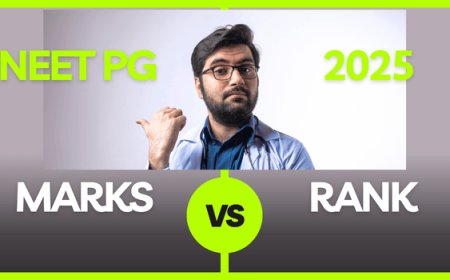
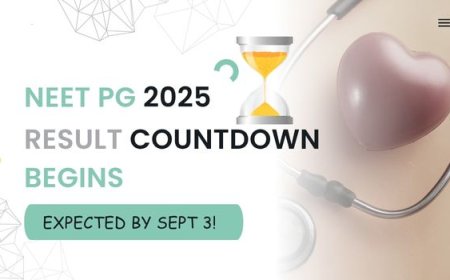
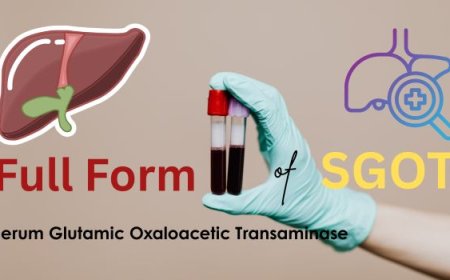

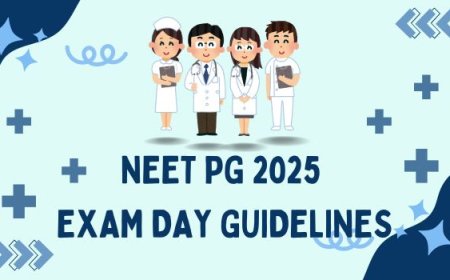

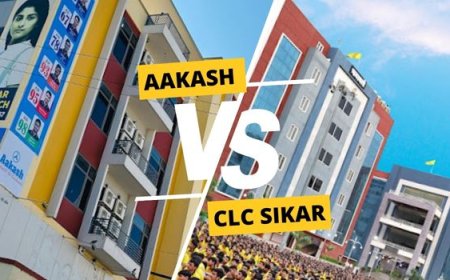

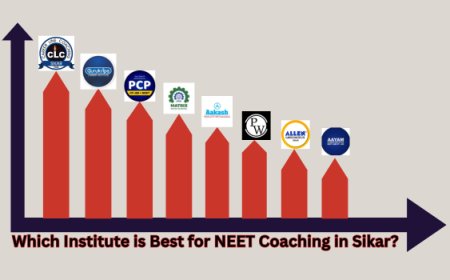
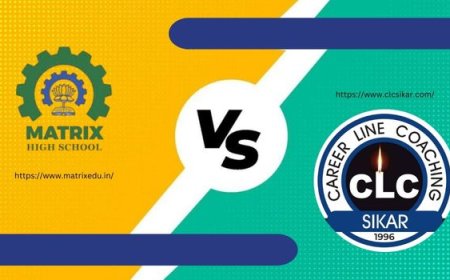
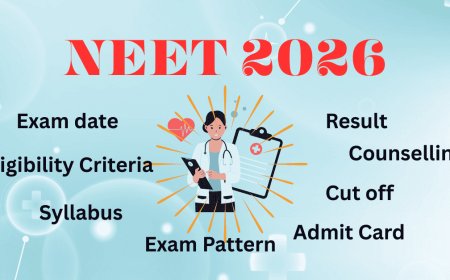
![What is the Difference Between NExT and NEET PG? [Updated 2025]](https://neetcoachingsikar.com/uploads/images/202504/image_430x256_680fd17ee9715.jpg)










![How Many Candidates Appeared in INI CET 2025? [Official Numbers Inside]](https://neetcoachingsikar.com/uploads/images/202505/image_140x98_682db1a9daa26.jpg)

